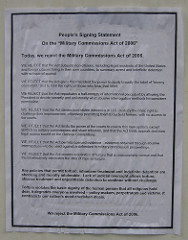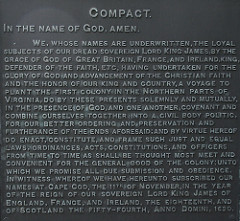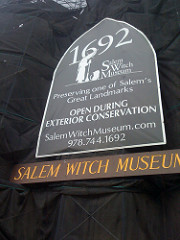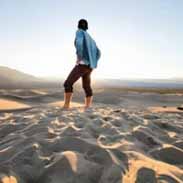APUSH s.e. terms (1607-1763)
Unlock all answers in this set
Unlock answersquestion
Indentured servants
answer
Some indentured servants had their contract of service worked out with waiting American colonists who would be their masters for four to seven years. Others, upon arrival, were bought and sold much in the same manner as slaves. Indentured servants had few rights. They could not vote. Without the permission of their masters, they were not allowed to marry, to leave their houses or travel, nor buy or sell anything. In the 1600s, most indentured servants were put to work in the tobacco fields of Virginia and Maryland. This was hard manual labor under the grueling hot summer sun, under which Europeans were not accustomed to working.Most indentured servants who survived the frrst four to seven years in America were freed. The master was required (depending upon the rules of the colony) to provide his former servant with the following: clothing, two hoes, three barrels of corn, and fifty acres of land.
question
The Navigation Acts
answer
The Navigation Acts of 1660 and 1696 restricted American trade in the following ways: 1. Only British ships could transport imported and exported goods from the colonies. 2. The only people who were allowed to trade with the colonies had to be British citizens. 3. Commodities such as sugar, tobacco, and cotton wool which were produced in the colonies could be exported only to British ports. These acts aroused great hostility in the American colonies. The Navigation Acts were finally revoked in 1849 after Britain supported the policy of free trade.
question
Writs of Asssistance
answer
allowed customs agents to search any building or ship for contraband without a specific warrant
question
Sugar Act
answer
(1764) It was a modified version of the Sugar and Molasses Act (1733). Colonists avoided the tax by smuggling and by bribing tax collectors. It put tight regulations on American trade, and provided for jury-less trials for accused smugglers.The Sugar Act reduced the rate of tax on molasses from six pence to three pence per gallon, while Grenville took measures that the duty be strictly enforced. The act also listed more foreign goods to be taxed including sugar, certain wines, coffee, pimiento, cambric and printed calico, and further, regulated the export of lumber and iron.
question
Tea Act
answer
(1773) The Tea Act, passed by Parliament, would launch the final spark to the revolutionary movement in Boston. The act was not intended to raise revenue in the American colonies, and in fact imposed no new taxes. It was designed to prop up the East India Company which was floundering financially and burdened with eighteen million pounds of unsold tea. This tea was to be shipped directly to the colonies, and sold at a bargain price. The Townshend Duties were still in place, however, and the radical leaders in America found reason to believe that this act was a maneuver to buy popular support for the taxes already in force. The direct sale of tea, via British agents, would also have undercut the business of local merchants.
question
The Stamp Act
answer
(1765) The Stamp Act was Parliament's first serious attempt to assert governmental authority over the colonies. Great Britain was faced with a massive national debt following the Seven Years War. The act put a tax on legal documents and taxed newspapers, almanacs, playing cards, and even dice. All of those items had to carry a stamp that the tax had been paid. This act led to riots in NYC, Newport, and Charleston.
question
Declaratory Act
answer
(1766) The English Parliament repealed the Stamp Act and at the same time signed the Declaratory Act. This document stated that Parliament had the right \"to bind\" the colonies \"in all cases whatsoever.\" It is important in history because it stopped the violence and rebellions against the tax on stamps. Also, it restarted trade with England, which had temporarily stopped as a defiant reaction to the Stamp Act.
question
Proclamation of 1763
answer
(1763) A proclamation from the British government which forbade British colonists from settling west of the Appalacian Mountains, and which required any settlers already living west of the mountains to move back east.
question
Boston Port Act
answer
an Intolerable Act imposed upon Boston in 1774, leader of the rebellions, in which their port was closed until damages were paid for and order was reestablished; restrictions were placed on town meetings and conspirators were sent to Britain for trial
question
Intolerable Act

answer
(1774) Imposed in response to the Boston Tea Party; closed Boston Harbor to trade, removed democratic elements from colonial government in Massachusetts, inhibited westward expansion by extending Québec's borders. Consisted of five acts. Boston Port Act, Administration of Justice Act, Massachutes Government Act, Quartering Act, and Quebec Act.
question
Quartering Act
answer
(1765) Provided that Great Britain would house its soldiers in America first in barracks and public houses, but if its soldiers outnumbered the housing available, would quarter them anywhere where there is space; requiring any inhabitants to provide them with food and alcohol, and providing for fire, candles, vinegar, salt, bedding, and utensils for the soldiers without paying. This act was finally repealed in 1770. It was reinstated in June 1774 as part of the Intolerable Acts.
question
Townshend Acts
answer
(1767) Townshend persuaded Parliament to pass the Townshend Acts. These acts put a light import duty on such things as glass, lead, paper, and tea. The acts met slight protest from the colonists, who found ways around the taxes such as buying smuggled tea. Due to its minute profits, the Townshend Acts were repealed in 1770, except for the tax on tea. The tax on tea was kept to keep alive the principle of Parliamentary taxation.
question
Currency Act
answer
(1764) Stopped colonial printing of paper money & forced colonists to pay in gold and silver
question
Mayflower Compact

answer
(1620) The first governing document of the Plymouth Colony. Agreement signed by 41 of the more than 100 passengers that stated the men agreed to accept majority rule and participate in a government in the best intrest of all members of the colony. As the colonists failed to land in the Virginia territory as had been originally planned, the indentured servents argued that they were free from their bond. This document was created to establish a government and prevent this from occuring. This agreement set the precedent for later docuemnts outlining comonwealth rule. The Mayflower Compact is often regarded as the foundation of the Constitution of the United States.
question
Roger WIlliams
answer
A dissenter, Roger Williams clashed with Massachusetts Puritans over the issue of separation of church and state. After being banished from Massachusetts in 1636, he traveled south, where he founded the colony of Rhode Island, which granted full religious freedom to its inhabitants.
question
Great Puritain Migration
answer
(1620-1640)The Puritan migration to New England was very marked in its effects in the two decades from 1620 to 1640, after which it declined sharply for a while. The term Great Migration usually refers to the migration in this period of English settlers, primarily Puritans to Massachusetts and the warm islands of the West Indies. They came in family groups, rather than as isolated individuals and were motivated chiefly by a quest for freedom to practice their Puritan religion. May refer more generally to the Puritan migration of approximately 70,000 refugees from England to what is now the Northeastern United States, the Chesapeake Bay area, and the Caribbean during the 1630s. (including the Winthrop Fleet of 1630 wherein 1,000 passengers migrated from England to the Massachusetts Bay Colony)
question
New England Cnfederation
answer
(1643) a federation of Massachusetts, Connecticut, New Haven, and Plymouth established by delegates from those four Puritan colonies; influenced by solution of trade, boundary, and religious disputes, but the principal impetus was concern over defense against attacks by the French, Dutch, or Indians, because of their divergence from accepted Puritan precepts, settlements in what later became Rhode Island and Maine were refused admission to the confederation.
question
Freedom of conscience
answer
is the freedom to have opinions on a fact, and have viewpoints or thought that are different than another person's. The right and responsibility to make an infromed moral decision on one's own.
question
Jonathon Edwards
answer
(1733-1735) He initiated the Great Awakening with a series of sermons, especially \"Sinners in the Hands of an Angry God\" and argued that God was rightfully angry with sinners He believed you can be saved by God's grace with repentance
question
Halfway Covenant
answer
(1662) This Puritan doctrine responded to the declining religious fervor of second and third generation Puritans by providing partial church membership for the children and grandchildren of church members. Puritan preachers hoped that this plan would maintain some of the church's influence in society.
question
Salem Witch Trials

answer
(1692) Hysteria ran through the village of Salem, Massachusetts, as witchcraft suspects were arrested and imprisoned, some ultimately executed. A special court was then set up by the governor of Massachusetts. Between June and September, over one hundred people had been accused with 19 people, mostly women, being executed. By October, the hysteria subsides, remaining prisoners are released and the special court is dissolved.
question
city on a hill
answer
Biblical ideal, invoked by John Winthrop, of a society governed by civil liberty (where people did only that which was just and good) that would be an example to the world.
question
Willaim Penn
answer
Quaker founder of pennsylvania who established free speech, freedom of religion, and participation in government. He treated the Natives fairly. Penn established an American sanctuary which protected freedom of conscience.
question
proprietary, royal, and charter colonies
answer
Proprietary colonies were founded by a proprietary company or individual and were controlled by the proprietor. Charter colonies were founded by a government charter granted to a company or a group of people. The British government had some control over charter colonies. Royal (or crown) colonies were formed by the king, so the government had total control over them.
question
Peter Zenger's Trial
answer
arrested in 1794 for printing false stories of the governor of New York, Zenger won case which was a landmark victory for freedom of the press in America
question
King Phillip's War
answer
(1775-1776) Hostitlities expoloded between the English settlers and the powerful Pequot tribe. In 1675, Metacom (called king Phillip by the English) forged an alliance and mounted a series of coordianted assults on english villages throughout New England. The war was the result of tension caused by encroaching white settlers. The chief of the Wampanoags, King Philip lead the natives. The war ended Indian resistance in New England and left a hatred of whites. Metacoms wife and son were sold into slavery and He himself was captured beheaded and drawn and quartered. The War slowed the westward march of English settlement in New England for several decades. But the war inflicted a lasting defeat on New Englands Indians.
question
George Whitefield
answer
Whitefield succeeded John Wesley as leader of Calvinist Methodists in Oxford, England, major force in revivalism in England and America. His journey to the colonies helped spark Great Awakening in 1738. Everyone in the colonies loved to hear him preach of love and forgiveness because he had a different style of preaching. This led to new missionary work in the Americas in converting Indians and Africans to Christianity, as well as lessening the importance of the old clergy.
question
Great Awakening
answer
(1733-) It was a revival of religious importance in the 17th century led by Jonathon Edwards and George Whitefield. It undermined older clergy, created schisms, increased compositeness of churches, and encouraged missionary work, led to the founding new schools. It was first spontaneous movement of the American people (broke sectional boundaries and denominational lines).
question
Thomas Hobbes
answer
(1588-1679) English materialist and political philosopher who advocated absolute sovereignty as the only kind of government that could resolve problems caused by the selfishness of human beings who were naturally cruel, greedy, and selfish . He wrote \"Leviathan\" and believed only a powerful governemnt could keep an orderly society.
question
Mercantilism
answer
European government policy of the sixteenth, seventeenth, and eighteenth centuries designed to promote overseas trade between a country and its colonies and accumulate precious metals by requiring colonies to trade only with their motherland country. Sought to export more than the country imported. \"For the good of the Mother Country\"
question
Bacon's Rebellion
answer
(1676) A rebellion lead by Nathaniel Bacon with backcountry farmers to attack Native Americans in an attemp to gain more land. Nathaniel Bacon, a Virginia planter, led a group of 300 settlers in a war against the local Native Americans. When Virginia's royal governor, William Berkley, questioned Bacon's actions, Bacon and his men looted and burned Jamestown. Bacon's Rebellion manifested the increasing hostility between the poor and wealthy in the Chesapeake region.
question
Harvard College
answer
the first American college, established in 1636 by Puritan theologians who wanted to create a training center for ministers. The school was named for John Harvard, a Charleston minister, who had left it his library and half his estate.
question
Middle Passage
answer
middle segment of the forced journey that slaves made from Africa to America throughout the 1600's; it consisted of the dangerous trip across the Atlantic Ocean; many slaves perished on this segment of the journey.
question
Phyllis Wheatly
answer
The first American poet to be published, and the first African American woman and she helped create the genre of African American Literature.She was made an American slave at 7 but was taught to read and write.
question
Puritans
answer
English Protestant dissenters who believed that God predestined souls to heaven or hell before birth. They founded Massachusetts Bay Colony in 1629. They composed the Protestant sect in England hoping to \"purify\" the Anglican church of Roman Catholic traces in practice and organization.
question
Pilgrams (Separatists)
answer
Were members of the group who rejected the church of engalnd and sailed to America. They founded the plymouth colony in 1620. A protestant group called separatists (wanted to separate from church of england) Persecuted for beliefs decided to leave English.
question
House of Burgessess
answer
created in 1619, (in Virginia) the first representative assembly in the American colonies. Could pass laws and set taxes.
question
Anne Hutchinson
answer
She preached the idea that God communicated directly to individuals instead of through the church elders. She was brought to trial in 1637 and convicted of hersey and excommunicated in 1638. Her followers (the Antinomianists) left Massachusetts and founded the colony of New Hampshire in 1642.
question
Willaim Bradford
answer
Govenor of plymouth plantation from 1621-1657
question
French and Indian War
answer
(1754-1763) Was a war fought by French and English on American soil over control of the Ohio River Valley; English defeated French in 1763. Historical Significance- established England as number one world power and began to gradually change attitudes of the colonists toward England for the worse.This conflict had its focal point in North America and pitted the French and their Native American allies against the English and their Native American allies. The event was known in Europe as the Seven Years' War. This struggle drove the French from North America.
question
John Locke
answer
English philosopher who advocated the idea of a \"social contract\" in which government powers are derived from the consent of the governed and in which the government serves the people; also said people have natural rights to life, liberty and property. Wrote Two Treatises on Government as justification of Glorious Revolution and end of absolutism in England. He argued that man is born good and has rights to life, liberty, and property. To protect these rights, people enter social contract to create government with limited powers. If a government did not protect these rights or exceeded its authority, Locke believed the people have the right to revolt. The ideas of consent of the governed, social contract, and right of revolution influenced the United States Declaration of Independence and the U.S. Constitution. He also laid the foundations for criticism of absolute monarchy in France.
question
Iroquios Confederacy
answer
A powerful group of native americans in the eastern part of the United States made up of five nations: Mohawk, Seneca, Cayuga, Onondaga, and Oneida.
question
headright system
answer
Established by Virginia Company, each settler received a single headright (50 acres) of land, encouraged family groups to migrate together because it meant larger landholdings for the family, any settler who paid passage for another immigrant would get an additional headright for each new arrival - the rich began importing laborers.
question
Salutary neglect
answer
A term coined by British statesman Edmund Burke regarding the English colonies; idea that the colonies benefited by being left alone, without too much British interferenceThroughout the late seventeenth and early eighteenth centuries, the English government did not enforce those trade laws that most harmed the colonial economy. The purpose of salutary neglect was to ensure the loyalty of the colonists in the face of the French territorial and commercial threat in North America. The English ceased practicing salutary neglect following British victory in the French and Indian War.
question
Albany Plan
answer
(1754) A proposal formed by Benjamin Franklin, when delegates from Pennsylvania, Maryland, New York and New England met in Albany, (established concept of colonial unity), here they tried to negotiate a treaty with the Iroquois, by setting up a general government that would manage relations with Indians, but the French and Indian war was already breaking out and no one in the colonial assembly approved it. The plan called for the colonies to unify in the face of French and Native American threats. The delegates approved the plan, but the colonies rejected it for fear of losing too much power. The Crown did not support the plan either, as it was wary of too much cooperation between the colonies.
question
James Oglethorpe
answer
Founder and governor of the Georgia colony. He ran a tightly-disciplined, military-like colony. Slaves, alcohol, and Catholicism were forbidden in his colony. Many colonists felt that Oglethorpe was a dictator, and that (along with the colonist's dissatisfaction over not being allowed to own slaves) caused the colony to break down and Oglethorpe to lose his position as governor.



